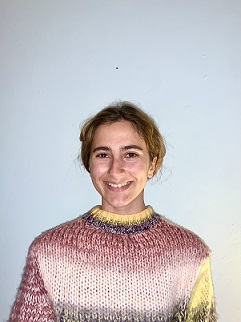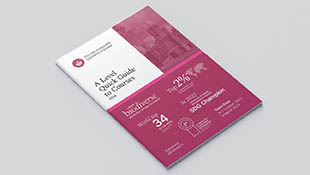-
Courses

Courses
Choosing a course is one of the most important decisions you'll ever make! View our courses and see what our students and lecturers have to say about the courses you are interested in at the links below.
-
University Life

University Life
Each year more than 4,000 choose University of Galway as their University of choice. Find out what life at University of Galway is all about here.
-
About University of Galway

About University of Galway
Since 1845, University of Galway has been sharing the highest quality teaching and research with Ireland and the world. Find out what makes our University so special – from our distinguished history to the latest news and campus developments.
-
Colleges & Schools

Colleges & Schools
University of Galway has earned international recognition as a research-led university with a commitment to top quality teaching across a range of key areas of expertise.
-
Research & Innovation

Research & Innovation
University of Galway’s vibrant research community take on some of the most pressing challenges of our times.
-
Business & Industry

Guiding Breakthrough Research at University of Galway
We explore and facilitate commercial opportunities for the research community at University of Galway, as well as facilitating industry partnership.
-
Alumni & Friends

Alumni & Friends
There are 128,000 University of Galway alumni worldwide. Stay connected to your alumni community! Join our social networks and update your details online.
-
Community Engagement

Community Engagement
At University of Galway, we believe that the best learning takes place when you apply what you learn in a real world context. That's why many of our courses include work placements or community projects.
Bachelor of Engineering (Undenominated)
Course Overview
Engineering is a wide area, covering such fields as civil, mechanics, electronics and computer technology. This course offers you the option of studying engineering in a general way for a year before going on to specialise in your chosen field in year two. It has been designed to help you make your choice about what professional engineering qualification you wish to study by giving you a year to study the basic concepts and fundamentals of engineering. Therefore, it will help you to make an informed choice about what you wish to specialise in by enabling you to find out where your aptitude and interests lie. Undenominated Engineering will always stand to students as a foundation course. On successful completion of their first year exams, students will be able to transfer to the second year of one of the programmes within the College of Science and Engineering. Prospective students should note that they will be at no academic disadvantage having chosen first year Undenominated Engineering: they will not have to complete an additional year of study (a common misconception about this programme)
Accreditatation
All Engineering Degrees at NUI Galway are professionally accredited by the statutory professional body, Engineers Ireland. This “Accreditation” means that the degree has been assessed and approved to meet the educational requirements for professional Engineers.
- Under an international agreement (Washingon Accord), any Degree accredited by the National professional body (Engineers Ireland) is recognized internationally. So having an “Accredited” degree means that employers outside of Ireland can (1) understand the quality/education achieved by a graduate and (2) know that it is equivalent to their own Education system/standards, and (3) can offer appropriate employment on this basis. For example, certain functions (sign off on large civil engineering construction projects) can only be carried out by a chartered engineer.
- Engineers Ireland changed the criteria for Accreditation in 2012, and now require a Masters (Level 9) qualification as the education standard required for Registered Professional Titles of Chartered Engineer* (prior to this, a Level 8 degree was required). The changes were implemented because the standard European engineering qualification (degree or diploma) is at level 9, and European industry maintains a strict differentiation between those engineers qualified at level 9 and those qualified at level 8. Any graduate interested in working in Europe/Worldwide is now strongly advised to get an accredited level 9 award.
- Engineers Ireland accreditation can be obtained at the following levels:
- Level 8: 4-year honours degree – associate engineer
- Level 9: 5-year masters degree – chartered engineer
*A Chartered Engineer is the highest professional education standard in Engineering. A chartered Engineer is competent (because of their education and training) to assume personal responsibility for the development and application ofengineering in research, design, construction, manufacturing, superintending, managing and in the education of the engineer. His/her work is predominantly intellectual and varied and not of a routine mental or physical character. It requires the exercise of original thought and judgement and the ability to supervise the technical and administrative work of others.
Applications and Selections
Who Teaches this Course
This course is taught by academic staff across the disciplines in Science and Engineering. Lecturers include:
- Prof Mark Healy (Programme Director)
- Prof Donal Leech
- Dr Enda Howley
- Dr Final Smith
- Dr Agnieszka Olbert
- Prof Martin OHalloran
- Dr Stephen Nash
- Dr Eoghan Clifford
- Dr Eimear Dolan
Requirements and Assessment
Key Facts
Entry Requirements
Minimum Grade H5 in two subjects and passes in four other subjects at O6/H7 Level in the Leaving Certificate, including Irish, English, Mathematics, a laboratory science subject (i.e., Chemistry, Physics, Biology, Physics with Chemistry (joint), Agricultural Science or Computer Science) or Technology, and any two other subjects recognised for entry purposes. Additional requirements: Minimum H4 in Mathematics or, alternatively, obtain a pass in the Engineering Maths Qualifying Exam (held in the University).
Additional Requirements
Recognition of Prior Learning (RPL)
Duration
1 Year (Students then transfer into a denominated programme)
Next start date
September 2024
A Level Grades (2023)
universityofgalway.ie/alevels
Average intake
160-170
QQI/FET FETAC Entry Routes
Closing Date
NFQ level
Mode of study
ECTS weighting
Award
CAO
GY401
Course code
Course Outline
Year 1
In first year you get to explore different areas of engineering, allowing you the time you need to find the discipline that is right for you. On successful completion of your first-year exams, you will be able to apply to transfer to the second year of one of the denominated programmes.
Year 2
Choose to follow one of the following denominated programmes:
- Civil Engineering
- Electrical and Electronic Engineering
- Mechanical Engineering
- Electronic and Computer Engineering
- Biomedical Engineering
- Computer Science and Information Technology
- Energy Systems Engineering
- Project & Construction Management
Year 3
- Follow chosen programme of Engineering
Year 4
- Follow chosen programme of Engineering
Year 5 optional
- Follow chosen programme of Engineering
Curriculum Information
Curriculum information relates to the current academic year (in most cases).Course and module offerings and details may be subject to change.
Glossary of Terms
- Credits
- You must earn a defined number of credits (aka ECTS) to complete each year of your course. You do this by taking all of its required modules as well as the correct number of optional modules to obtain that year's total number of credits.
- Module
- An examinable portion of a subject or course, for which you attend lectures and/or tutorials and carry out assignments. E.g. Algebra and Calculus could be modules within the subject Mathematics. Each module has a unique module code eg. MA140.
- Subject
- Some courses allow you to choose subjects, where related modules are grouped together. Subjects have their own required number of credits, so you must take all that subject's required modules and may also need to obtain the remainder of the subject's total credits by choosing from its available optional modules.
- Optional
- A module you may choose to study.
- Required
- A module that you must study if you choose this course (or subject).
- Required Core Subject
- A subject you must study because it's integral to that course.
- Semester
- Most courses have 2 semesters (aka terms) per year, so a three-year course will have six semesters in total. For clarity, this page will refer to the first semester of year 2 as 'Semester 3'.
Year 1 (60 Credits)
Required EI140: Fundamentals of Engineering - 10 Credits - Semester 1Required CH140: Engineering Chemistry - 5 Credits - Semester 1
Required EI160: Engineering Graphics - 5 Credits - Semester 1
Required MP120: Engineering Mechanics - 5 Credits - Semester 1
Required MA140: Engineering Calculus - 5 Credits - Semester 1
Required CT1110: Engineering Computing I - 5 Credits - Semester 1
Required PH140: Engineering Physics - 5 Credits - Semester 2
Required MM140: Engineering Mathematical Methods - 5 Credits - Semester 2
Required EI150: Engineering Design - 10 Credits - Semester 2
Required CT1111: Engineering Computing II - 5 Credits - Semester 2
Further Education
Honours graduates can pursue higher degrees in a wide range of related disciplines.
Why Choose This Course?
Career Opportunities
Depending on students' choice of engineering discipline, there is a wide range of career opportunities for engineers, in industry, universities, hospitals, medical institutes, government regulatory agencies, research, software companies, financial services, and much more.
Who’s Suited to This Course
Learning Outcomes
Transferable Skills Employers Value
Work Placement
Study Abroad
Related Student Organisations
Course Fees
Fees: EU
Fees: Tuition
Fees: Student Contribution
Fees: Student levy
Fees: Non EU
EU Fees are comprised of Tuition + Student Contribution Charge + Student Levy** €140. **Payable by all students and is not covered by SUSI. Further detail here.
Find out More
What Our Students Say

Eva Debarros | BE Biomedical Engineering
Overall, I am extremely happy I chose to do engineering. My favorite part about the course is the plethora of subjects we get to study not just in first year, but throughout the next 3 /4 years of our degrees. In first year, I had the chance to study subjects I was familiar with from Leaving Cert while also learning skills I never thought I would enjoy or understand such as computer programming, a module I went into with no prior knowledge but encouraged me to choose ECE as my course of study. First year alone taught me that engineering is all about thinking on your feet, sharing knowledge and getting creative with solutions, a lesson that I think is essential for any future career based in STEM. As well as this, being an engineering student has enabled me to obtain a summer internship with a University of Galway based research institute who are exploring technologies at the convergence of Computer Science, Web Science and Artificial Intelligence. These are key areas in the future of computer technology and having an opportunity to explore these technologies has allowed me to gain an insight into the world of work I will be entering upon graduating.








.jpg)
.jpg)












